King’s responsible for Prof. Wayne Hankey’s history of sexual abuse, review concludes
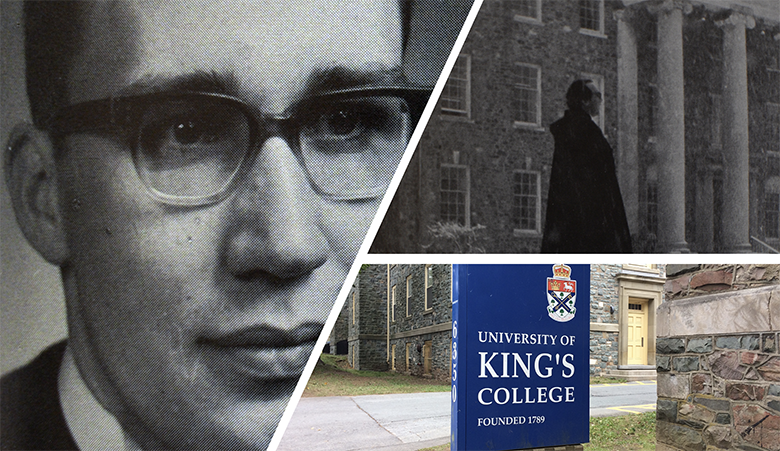
caption
The Rubin report said Dr. Wayne Hankey "had access to young men through his teaching and social life at King’s, as well as his position as a don in King’s residence." The report concluded "King's is responsible for its role in the harm Dr. Hankey has caused."Report cites lack of proper disciplinary action, evidence of destroyed document
Editor's Note
Trigger warning: This story contains references to sexual assault.
The University of King’s College promises compensation for alleged sexual-assault victims of former professor and Anglican priest Wayne Hankey after an external review concluded the university failed to sufficiently investigate claims against Hankey and that a report into his conduct was destroyed in 2003.
The two-year review, commissioned by King’s and led by Toronto lawyer Janice Rubin, found the administration’s response to complaints about Hankey’s behaviour was inadequate even by standards of 30 to 40 years ago.
The Rubin report into Hankey’s conduct includes summaries of 13 different instances of his sexual assaults, groping, sexual advances, bullying, homophobic comments, and misogyny between 1977 and 2019. Hankey, who died in 2022, targeted young men in and around the King’s community.
“In our view, King’s response to becoming aware of Dr. Hankey’s inappropriate behaviour, or suggestions of it, was lacking. This served to protect Dr. Hankey,” Rubin, of Rubin Thomlinson LLP, wrote in the report that King’s released on March 15.
The report continued: “(Hankey) had access to young men through his teaching and social life at King’s, as well as his position as a don in King’s residence. For that, we believe that King’s is responsible for its role in the harm Dr. Hankey has caused.”
The incidents chronicled in the Rubin report happened on the King’s campus and residences as well as in Hankey’s campus office, Hankey’s home, the president’s lodge, and the King’s and Dalhousie pools.
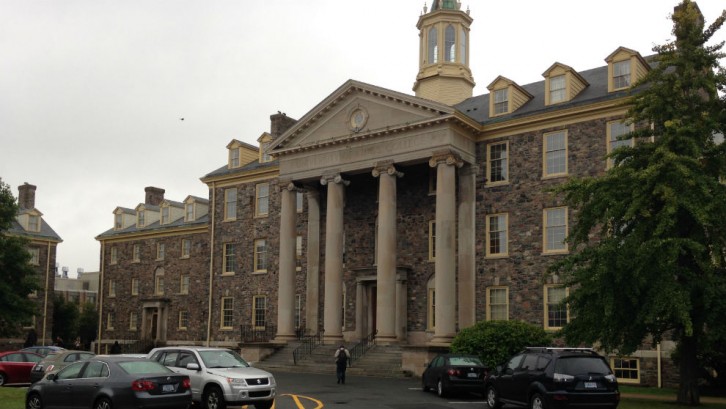
caption
The review found that a King’s committee interviewed Hankey in 1990 about a sexual-assault complaint but didn’t speak with his accuser. Hankey was suspended without pay but kept his jobs at King’s and Dalhousie.Hankey taught classics and theology at King’s and Dalhousie universities, and he was the first director of the Foundation Year Program at King’s beginning in 1972. The native of Lower Sackville N.S. was also an Anglican priest until 1991, when the church removed him from the position following an ecclesiastical trial on a sexual-assault complaint.
Contrasted investigations
King’s investigated the same complaint in late 1990 and into the spring of 1991 but Rubin wrote that the university’s inquiry fell short in comparison with that of the Anglican Diocese of Nova Scotia and Prince Edward Island. A committee of three of Hankey’s colleagues conducted the King’s investigation.
The Rubin report concluded that, unlike King’s, the church’s investigation looked into past complaints about Hankey and “made a greater attempt to understand the entirety of Dr. Hankey’s conduct, not just one piece of it.”
Rubin concluded the committee at King’s failed to explore the “possibility of a pattern of behaviour on (Hankey’s) part.”
The external review said committee members believed Hankey’s account that the relationship with the complainant was inappropriate but consensual, this despite the word “assault” or “assaulted” appearing ten times in the written complaint. The committee did not speak with the complainant, Rubin wrote.
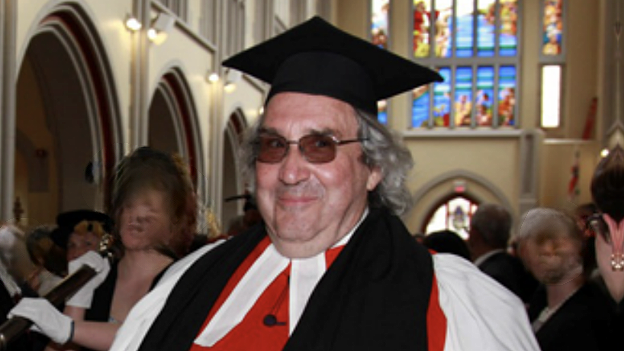
caption
The Rubin report into Hankey’s conduct includes summaries of 13 different instances of his sexual assaults, groping, sexual advances, bullying, homophobic comments, and misogyny dating from 1977 to 2019.The King’s committee suspended Hankey without pay and removed him as director of the Foundation Year Program. It also barred him from residence and stripped him of his role as don. However, he kept his job as professor and returned to King’s in 1993 where he continued to verbally harass students. As noted in the Rubin report, Hankey sexually harassed and assaulted a former King’s student as recently as 2019.
The King’s committee’s written report was destroyed in 2003 by the then-President when he was cleaning his office at the end of his term, according to Rubin’s report. Though Rubin did not directly name the then-president, the King’s website lists Dr. Colin Starnes as finishing his presidential term in 2003.
Same-day apology
The Rubin report recommended King’s publicly apologize to the victims. Current King’s president William Lahey immediately adopted the recommendation during his live-streamed formal response to the report on March 15.
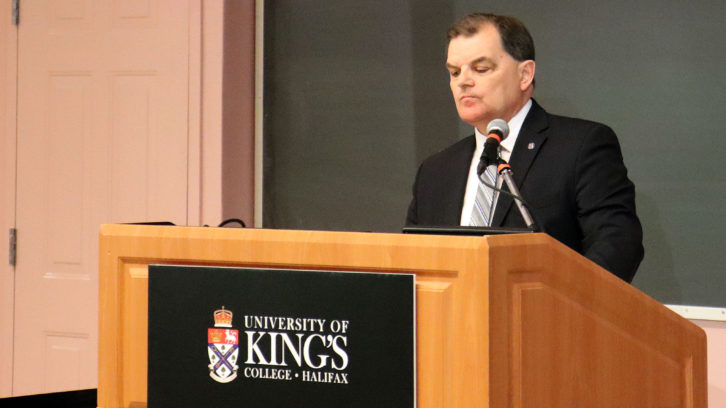
caption
King’s President Bill Lahey adopted all of the Rubin Report’s recommendations.“I apologize to you deeply, sincerely, and publicly,” Lahey told students, staff and about a dozen journalists in King’s Alumni Hall.
“We failed to protect you. We failed to believe you. We are sorry.”
Lahey said in his address that anyone who would like to share their testimony or knowledge of an experience they had with Hankey had until April 14 to come forward and have their information considered in the report. This fulfilled the first recommendation in the report for a public call-out for further information.
Lahey accepted accountability on behalf of the university and said the institution would also follow Rubin’s recommendation to pay out settlements for ongoing lawsuits and look into compensation for survivors.
Although Lahey did not say how much King’s would pay or who would get the money, he agreed the cases should be settled out of court.
“We also do not believe that these kinds of matters should be litigated.”
Legal action
In March of 2022 Glenn Johnson, the complainant in one of the lawsuits, sued the Board of Governors of University of King’s College, Dalhousie University, Wayne Hankey’s estate and The Diocesan Synod of Nova Scotia and Prince Edward Island for damages.
According to Johnson’s civil suit, Hankey allegedly took the complainant, then 14, on a three-day trip to the University of King’s College in or around 1977 and 1978 when the professor got him drunk and sexually assaulted him. The court filings say that at the time, Johnson thought Hankey’s sexually advances were expected in order to be admitted to King’s and to become a minister with the Anglican Church.
‘Never … again’
Liam O’Reilly, Johnson’s lawyer, told The Signal in an interview following the president’s address that, for his client, the report means “they know they are not alone.”
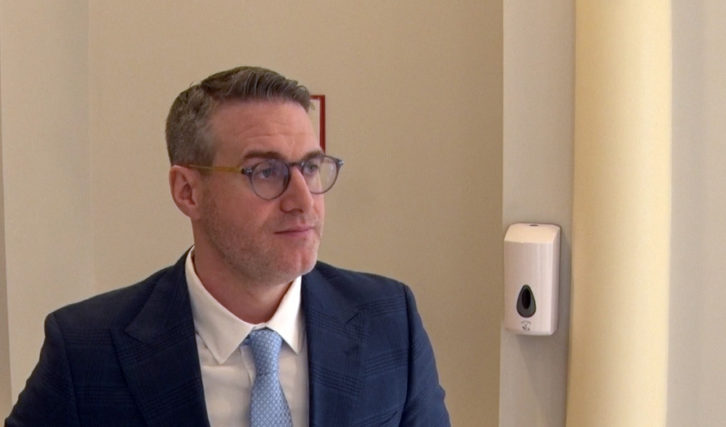
caption
Halifax lawyer Liam O’Reilly, who represents one of Hankey’s alleged victims, says he hopes the Rubin report leads to change at King’s.O’Reilly said he thinks current and future King’s students will play an important role in making sure the university is held to account.
He said the biggest question now is how far the university will go in accepting responsibility, but that he respects Lahey for his forward-looking approach.
“I think to be fair to him he’s focusing on ‘we may never know [the extent of the damage] but these things happened let’s make sure it never happens again.’ ”
Who Was Wayne Hankey?
Hankey was a King’s professor from 1972 to 2015 who is credited with founding the Foundation Year program. It’s an intensive year of classics education that is required for first-year students. He was also a librarian at the University, and was active at the King’s College Chapel well after retirement.
On Feb. 1, 2021, Halifax Regional Police announced a charge of sexual assault against Hankey related to an incident in a King’s residence in 1988. On the same day as police reported the charge, King’s said it was initiating an independent review to investigate Hankey’s history of sexual abuse and to implement changes to improve the safety and culture of the university.
In April of 2021 HRP announced it had charged Hankey with one count of sexual assault and one count of indecent assault for incidents that happened between 1977 and 1982.
Hankey, 77, died in his home on Feb. 6, 2022, about one month before his trial was set to begin.
Whisper networks and reckoning with the past
The final report and interviews with students indicated that Hankey’s behaviour was often perceived as an open secret.
Aideen Reynolds, a fourth year King’s student, told The Signal she was warned about Hankey before she had even arrived at the university. Her father, who had attended King’s, told her “the student body was aware of the danger that he posed to them.”
“King’s is like a small town,” said Reynolds. “I think that everyone knows everybody’s business.”
She added that dealing with the problem is a shared responsibility.
“I think pointing fingers at individuals or trying to find individuals to blame gives us a scapegoat. This is everybody’s problem.”
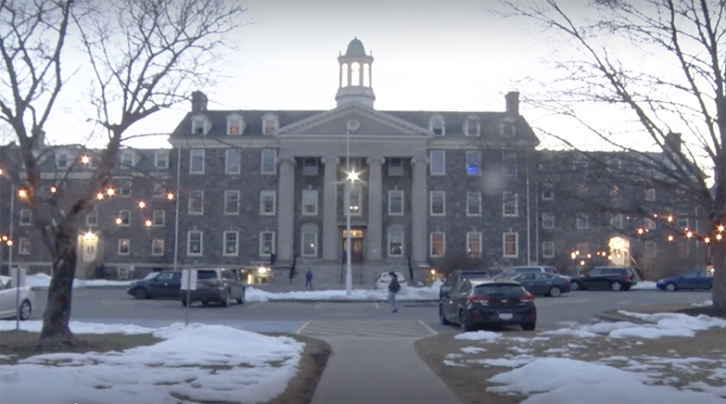
caption
Most students interviewed by The Signal said they feel safe on campus because of the multiple policies the school has implemented regarding sexual assault.Natalia Tola, the interim King’s Student Union president, said the school’s small size allows students to communicate open secrets and warnings to each other.
“Chances are that if you go to King’s, you know people who work in King’s, you know people who went years before,” said Tola. “In this way, I came to know that this had all happened.”
President Lahey said he remembers hearing about the behaviour of a King’s professor upon moving to Halifax in 1991.
“I had no idea who that professor was,” the president said in an exclusive interview with The Signal at the King’s library.
The university committee that disciplined Hankey in 1991 failed to recognize his actions as sexual assault. Lahey said he thinks this failure allowed people to have a misguided understanding of what really happened.
“The official version became that he had been punished for having an inappropriate relationship with a student,” said Lahey. “That’s serious, but it’s not the same thing as sexually assaulting a student.”
“I think that formed a lot of the behaviour or lack of action that happened after that. That’s why I think it’s so important that this historical record be set straight.”
Bee Lennox, a second-year King’s student, said the small community of students makes her feel protected.
“If there’s anybody unsafe or untrustworthy, I have faith that because people are so close to each other, I will get that information,” she said. “And, like, people kind of watch out for each other.”
Culture shift
Despite the university’s history, King’s students Gideon Morton and DD Beaumont also said they feel safe on campus.
“In the last few years, everything has been very, very regulated, very safe,” said Beaumont.
Morton added King’s has “hired a number of new positions that have, in the isolated incidents where people do have issues, they’ve actually been able to deal with it very well.”

caption
King’s Sexual Health and Safety Officer Jordan Roberts has emerged as a critical stabilizing force. The interim Rubin report referenced Roberts’ position and said students support her role in the community.One of these supports is Sexual Health and Safety Officer, Jordan Roberts, who started working for King’s in August of 2019.
In the interim report Roberts’ position is mentioned because many students supported her role in the community.
“Many participants also expressed the feeling that King’s administration took the issue of sexualized violence seriously and saw this review process as a sign of transparency and accountability,” said the report.
Roberts told The Signal her role was part of a larger effort by the university.
“There’s no individual that can make a culture shift,” Roberts said in an interview at the King’s library. “We’ve added an equity officer and accessibility officers, student support adviser, and our residence team is growing. I think King’s has made a significant investment in more student support.”
Lahey says the university has been working to implement the recommendations, as outlined in the King’s action plan, since the interim report was released.
The recommendations include but are not limited to: enhanced training about the sexual violence policy, and about sexualized violence more generally, for students, faculty, and staff; diversified and enhanced supports for students; and establishing a process to deal with multiple disclosures about the same person.
“I get the sense that we’re in a period of reconciliation,” said Lennox, the second-year student. “They’re responding in a way that seems genuine to me.”
Beaumont added: “It’s nice to see that it’s been at least addressed now.”
About the author

Olivia Piercey
Olivia Piercey is a fourth year journalism honours student. When not working for The Signal, she can found hosting The Basement Couch on CKDU,...

d
douglas bell